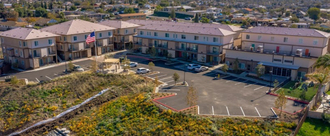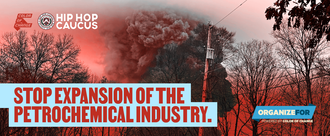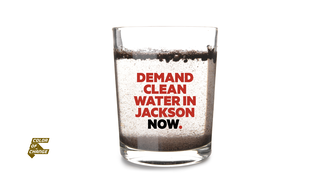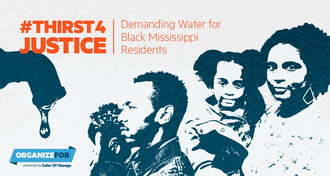- Featured
- Afropunk Army
- Community Control
- Confederate Symbols
- Cop Watch
- Corporate Accountability
- Criminal Justice Policy
- Drop/Bring Charges
- Economic Justice
- Education
- Employment Discrimination
- End The War on Black People
- Environmental Justice
- For-Profit Colleges/Universities
- Gulf Coast
- Housing Rights
- Immigration
- Invest-Divest
- Media Accountability
- Music Industry
- No Guns in Schools
- Open Internet
- Police Accountability
- Political Power
- Pop Culture
- Private Prisons
- Reparations
- Reproductive Justice
- Right Wing Racism
- School-to-Prison Pipeline
- Sports
- Voting Rights
- Wrongful Imprisonment
- More
-
Demand SDHC & Nonprofits End Corporate Landlord Profiteering—Deliver on Promised SupportExpanded Analysis: SDHC, Nonprofits, and Corporate Capture of the Justice System1. SDHC and Partner Nonprofits as Corporate Landlords Over the last decade, the San Diego Housing Commission (SDHC) and a web of affiliated nonprofits have pivoted from traditional affordable‐housing advocates into large‐scale property owners. By securing Housing Authority and HUD grants, they’ve assumed full control over development, leasing, and resident services—often presenting themselves as turnkey experts in property management and case coordination. 2. The Service Delivery Gap Yet beneath the polished branding lies a stark reality: • Waiting lists stretch for months or years, leaving families in unstable or overcrowded conditions. • Promised wraparound services—job training, mental‐health counseling, legal aid—are sporadic or nonexistent. • Staffing models favor grant writers and compliance officers over licensed property managers and credentialed social workers. This mismatch between marketing and action undermines the very goals of affordable‐housing funding. 3. Root Causes of Organizational Misalignment 1. Funding‐First Mindset • Incentive structures reward billions in secured grants rather than tangible resident outcomes. 2. Underqualified Staffing • Case managers without licensure attempt to navigate landlord‐tenant law, generating legal missteps and eviction pitfalls. 3. Weak Accountability • Audits focus on financials, not resident well‐being metrics like housing stability, income growth, or school attendance. 4. Corporate Influence Over the Justice System Beyond service failures, a more insidious trend has emerged: corporate landlords leveraging financial ties to shape eviction outcomes. 4.1 Campaign Contributions & Judicial Foundations • Major developers and nonprofit boards funnel political donations through PACs to judicial candidates. • Charitable gifts to court‐affiliated foundations create goodwill that can sway discretionary decisions. 4.2 Lobbying & the Revolving Door • Law firms representing SDHC and partner nonprofits recruit former judges as “of counsel,” reinforcing cozy relationships. • Judges eyeing post‐bench careers may hesitate to rule against these well‐connected entities. 4.3 Fast‐Tracked Eviction Dockets • Specialized “eviction calendars” push cases through without thorough hearings. • Reliance on affidavit evidence—filed by corporate property managers—limits tenant defenses and discourages legal representation. 5. Impact on Vulnerable Families When housing agencies morph into profit-driven landlords and courts bend under corporate pressure, the fallout is severe: • Forced Displacement: Families uprooted from schools, medical care, and support networks. • Psychological Trauma: Children and adults experience anxiety, depression, and a sense of injustice. • Erosion of Trust: Communities lose faith in both housing authorities and the judicial system meant to protect them. 6. Toward Genuine Accountability and Care To reverse these trends, SDHC, partner nonprofits, and the courts must realign with their public missions: • Recruit and empower licensed property managers, social workers, and tenant‐rights attorneys. • Institute transparent metrics tied to resident stability, not just unit occupancy. • Ban campaign contributions and foundation gifts from housing developers to judicial candidates. • Mandate comprehensive hearings—rather than affidavit‐driven dockets—for all eviction cases. • Form independent oversight panels with tenant, community, and legal advocates to audit both service delivery and court practices. By refusing to trade human well-being for funding optics and corporate profits—and by restoring judicial impartiality—San Diego’s housing programs can finally fulfill their promise: transforming empty houses into nurturing homes and ensuring every family the stability and dignity they deserve.5 of 100 SignaturesCreated by Zephonnetta Stephens
-
The Rise of San Diego Police Department's Unethical TacticsIt would at least slow the unconstitutional and unethical methods used by San Diego's law enforcement to secure desired outcomes as well as the constant malicious prosecutions by the District Attorneys who rely on the tactics of these officers.84 of 100 SignaturesCreated by Azlan Prescott
-
United Diaspora To Keep Commissioner Wale Adelagunja - DACAC1. Diversity of thought leadership is needed for the progress of our communities. 2. Commissioner Wale has been very resourceful to the community and his contribution towards the growth in DE & beyond is needed. 3. This violates the vision and mission of DACAC and is against the culture that the African Diaspora is trying to promote in a united front. 4. Bullying tactics will not be tolerated in the State of Delaware. 5. The community was not aware and was not notified about the attempts of his removal. 6. Commissioner Wale was one of the original founders in the attempt to unite and build the people.72 of 100 SignaturesCreated by Mela Cook
-
Land Sovereignty for Blaine Elementary School GardenEducational, green spaces like The Strawberry Mansion-Blaine Elementary Environmental Center provide food, gathering, education, and social advocacy support community healing and encourage youth engagement. The environmental provides vital science, math, technology, art, and engineering education through an agricultural lens. Blaine students deserve access to environmental spaces that enhance their everyday learning and provide new avenues for study.46 of 100 SignaturesCreated by Lavinia Soliman
-
Stop expansion of the petrochemical industryFor decades, the petrochemical industry has been an environmental and public health concern for communities in Texas, Louisiana and the Ohio River Valley, where many of these facilities are located. But the industry's expansion brings those concerns to the backyards of millions of Americans. After the most recent freight train derailment in East Palestine, Ohio, officials are still releasing lists of carcinogenic chemicals that have tainted the community's air, making it difficult to breathe. Chemicals from the derailment have spilled into the Ohio River, affecting the water supply for 25 million people in the region. From the discovery of toxic chemicals in St. James Parish, Louisiana, to the cancer cluster discovered in Houston’s Fifth Ward, we’ve seen what happens when the government allows private corporations in the petrochemical industry to operate unchecked for the sake of profit. Time and time again, the EPA’s refusal to regulate this industry — or to place sanctions on the corporations that operate negligently — has led to countless ecological disasters, which often take their greatest toll on the health of Black and low-income communities. These communities then are left with few resources or recourse once their homes suddenly are made dangerous and unlivable, and even fewer options once the news cameras leave. That’s why we know that the lack of regulation that allowed a corporation to endanger the health of East Palestine’s residents is the same lack of regulation that will continue to lead to the loss of countless lives in vulnerable communities across the nation if we do not take action. We must make a commitment to halt the unnecessary expansion of the petrochemical industry now. The communities affected by the Norfolk Southern derailment deserve answers and accountability. No one from the petrochemical industry showed up at a recent town hall to address these community concerns in East Palestine, Ohio. And it remains unclear which corporation is responsible for the chemicals being transported by Norfolk Southern, the rail company responsible for the derailment. Residents hope to get some answers when environmental activist Erin Brockovich and civil litigator Mikal C. Watts address a town hall on Friday, Feb. 24, at East Palestine High School. We must stop the expansion of this industry and move beyond petrochemicals. Sign this petition and join our movement today.1,114 of 2,000 SignaturesCreated by Hip Hop Caucus
-
Be The ChangeViolence can happen anywhere, anytime. We cannot wait for government or policy makers to do anything about this. We have to personally get involved in our own capacity. Peace is our human nature. Love is our nature. Only when we find peace within, can we help spread it around. We can do it together!56 of 100 SignaturesCreated by Mandar Apte
-
Jackson, MS residents need reliable access to clean water!For over a week, more than 150,000 residents of Jackson, Mississippi did not have access to clean water. Our public schools were shut down. Our hospitals had to move patients, many of whom were in critical condition, out of the city to get care. And many of us had to wait outside in mile-long lines for water we could use safely, while many people were turned away because there wasn’t enough clean water to go around. This is an inhumane situation, but the people who live here know that the water crisis in Jackson is not new. In a city that is over 80% Black, the warning signs were there. For years, our state government has refused to do anything about our broken infrastructure and sewer system, which isn’t an invisible problem; our water pipes routinely collapse under us, causing our streets to cave in. And now, during a moment that is life and death for so many of us, Governor Tate Reeves and the Mississippi State Legislature are holding up the funding we need to fix the problem. They’re demanding that the City of Jackson match any state funding with money we do not have and should not be forced to give. Poor people have suffered enough, and we don’t have the means to solve this on our own without our elected officials stepping up to the plate. They asked for us to vote for them and they got the job. Now, they need to deliver for the people. We are demanding that Governor Reeves, the Mississippi State Legislature, and Mayor Lumumba work together to: - Call a special session of the Mississippi State Legislature to address this crisis immediately; - Release a joint comprehensive plan for addressing the water crisis in Jackson immediately; - Release the designated infrastructure funding to address the water crisis in Jackson immediately; - Drop the condition and requirement that the City of Jackson put up matching funds in order to sufficiently address the water crisis; and - Issue a moratorium on water bills and shut-offs for all Jackson residents affected by the water crisis until reliable access to clean water is restored. Something must be done now. According to Mayor Lumumba, it is going to take at least one billion dollars to comprehensively replace the water system, and will likely require years of construction to fully complete. But that investment is the bare minimum we should expect from the people we elected to lead. We don’t want excuses. We want action. Jackson, Mississippi needs reliable access to clean water.9,151 of 10,000 SignaturesCreated by Kathy Sykes
-
#Thirst4Justice: Call on MEMA to Validate the Water Crisis For Valuable Recovery Funding!For the past five weeks, I have endured the water crisis. Jackson is over 80% Black and we went without vital water access for weeks. While white folks in other counties had running water in their homes, I watched the direct impact that neglect has had on my community. Jackson’s water crisis is not only a health problem and an environmental problem -- it’s undeniably a race problem. Thousands of Black people have caught rain to flush the toilet and stacked cases of water to wash their hands and brush their teeth, while simultaneously trying to survive a global pandemic that disproportionately affects Black people. I’m starting this petition to ensure that my community gets the help they desperately need and deserve. The city of Jackson has a history of being disenfranchised in Mississippi. This isn’t the first time that we’ve been overlooked, and we need action. Join me in telling Stephen McCraney to do right by Jackson. My community demands continuous water testing to assess whether it is safe for consumption, proper damage assessments, and a long term plan in ensuring that water consumption is safe without the threat of a state takeover of the Jackson community. Stephen McCraney is the Executive Director of the Mississippi Emergency Management Agency (MEMA) and he has the power to speed up the process of assessing the damage to Jackson’s water system. Speeding up the process will secure important federal funding for our water systems recovery and help my community heal together. Sign this petition and tell McCraney to prioritize damage assessments in Jackson while providing resources that restore trust for Black Mississippians now!625 of 800 SignaturesCreated by Jordan Jefferson
-
Tell Chrysler: Detroit Residents Need Environmental Health Protections NowIt’s happening again. Fiat-Chrysler Automobiles (FCA) is expanding in Detroit and has only agreed to commit $8.8 million in “community benefits” for a plant they are receiving a whopping $420 million in public tax abatements to expand. The worst part? This multi-billion-dollar company has failed to follow through on even the smallest commitments it has made thus far to the majority-Black community it claims to want to support. As part of the community benefits agreement it signed in April 2019 in order to receive the tax abatements, Chrysler agreed to renovate nearly 60 homes on Beniteau, the street closest to the project. Most of these homes are owned by Black, elderly, long-time residents. To date, they have renovated fewer than 5 of those houses. We must be clear about what this means. Not only does Chrysler think it’s acceptable to set aside less than 3% of the public funding it is receiving from the government for the benefit of the community, but it is refusing to be accountable to even the paltry promises its leadership has made to our people. Now, it is time for Chrysler to step up and work in cooperation with the people of Detroit to negotiate community protections that reflect the real health and environmental risks to Black Detroiters that Chrysler’s expansion has brought with it. We’ve long known that pollution takes its greatest toll on the health of Black communities, who are often left with few resources or recourse. That has never felt clearer than in the middle of a global pandemic, as politicians, corporations, and the healthcare system alike continue to make decisions that mean that Black people are contracting and dying of COVID-19 at higher rates than almost every other group in the country. Chrysler’s leadership, which has managed to find a way to offset increased emissions in its suburban plant, but has failed to provide a clear plan for how it will handle the increase in emissions in a neighborhood that is majority Black, is no exception. A national study links long-term exposure to air pollution and COVID-19 mortality. In the U.S., Black children suffer disproportionately from asthma, and are seven to eight times more likely to die of asthma than white children. Communities of color face nearly 40% more exposure to toxic air pollution than white communities. From Louisiana’s ‘Cancer Alley’ to the recently discovered cancer cluster in Houston’s Fifth Ward, we know why mega-companies like Chrysler feel comfortable making decisions that place Black people in close proximity to pollution and other environmental hazards. Chrysler is counting on environmental racism to avoid taking responsibility for their actions. We can’t let them. After George Floyd was murdered, Chrysler CEO, Michael Manley, sent an email to employees claiming that he “emphatically rejects the prejudice and hatred” Black Americans still face in this country. But the fact is, Chrysler bears a huge responsibility for the environmental violence, harm, and discrimination against Black people in Detroit, and is still actively profiting from that violence to this day. We deserve more than lip service from a company that has relied on us as both workers and funders for generations. We, the people, say NO to corporations and CEOs that claim Black lives matter in one breath while supporting our destruction in the next. Residents closest to the plant on Beniteau Street and others across the Eastside of the city, along with Detroit People's Platform have worked hard to bring these critical issues to the attention of local officials and Chrysler leadership with no success. Now, we need your voices to make sure Chrysler knows they must deal with the community in order to benefit from our public tax dollars. Sign our petition today and make sure Chrysler knows they must deal with the real Detroit if they want to keep building in our community.5,758 of 6,000 SignaturesCreated by Robert Shobe
-
A Call for A Cultural New Deal for Cultural and Racial JusticeThe Cultural New Deal for Cultural and Racial Justice is a call for us to transform our personal, institutional, and global thinking. We believe that culture moves before policy. We believe that culture endures beyond politics. We wrote this Call because our work in culture and arts is inextricably linked to larger social movements for change. We invite you to adopt and adapt this Call to your specific contexts to hold leaders, policy-makers, and institutions — and ourselves — responsible, accountable, and transparent in achieving equity and justice. In these unprecedented times, as justice movements converge, many of us have asked ourselves what the stakes are for the culture we want to advance. We concluded that we needed to change the conditions under which we artists and culture bearers labor and live. The Cultural New Deal for Cultural and Racial Justice points us toward new understandings of how we together can build a culture that is inclusive, sustainable, and leads us toward justice and freedom for all. We urge timetables that are immediate and demonstrate change that is not aspirational, but concrete, measurable and visible within 1-3 budget cycles. We offer this Call in the spirit of advancing accountability and collective responsibility, and urge you to activate these ideas within your work and our shared future. // El Nuevo Trato Cultural para la Justicia Cultural y Racial es una convocatoria para que transformemos nuestro modo de pensar personal, institucional y global. Creemos que la cultura cambia antes que la política. Creemos que la cultura perdura más allá de la política. Escribimos este llamado porque nuestro trabajo dentro de la cultura y las artes está inextricablemente entrelazado con los movimientos sociales para el cambio. Les invitamos a adoptar y adaptar este Llamado para sus contextos particulares para responsabilizar a líderes, creadores de políticas e instituciones, al igual que nosotres mismes, por lograr la equidad y la justicia de forma responsable y transparente. En estos tiempos sin precedentes, conforme convergen los movimientos por la justicia, muches de nosotres nos hemos preguntado qué está en juego para la cultura que queremos avanzar. Hemos concluido que tenemos que cambiar las condiciones bajo las cuales nosotres les artistas y portadores de cultura trabajamos y vivimos. El Nuevo Trato Cultural para la Justicia Cultural y Racial nos dirige hacia nuevos entendimientos sobre cómo, juntos, podemos crear una cultura que es inclusiva, sustentable y que nos lleva hacía la justicia y la liberación para todes. Exigimos cronogramas que son inmediatos y que demuestran un cambio que no es aspiracional y que, más bien, es concreto, medible y visible dentro de 1 a 3 ciclos presupuestarios. Ofrecemos este Llamado en aras de avanzar la transparencia y la responsabilidad colectiva y urgimos que activen estas ideas dentro de su trabajo y dentro de nuestro futuro compartido.2,463 of 3,000 SignaturesCreated by Cultural New Deal for Cultural and Racial Justice

-
Take It Down Now: Stone MountainOn Saturday, August 12th, white nationalists marched through Charlottesville, communities and the University of Virginia campus, rallying around a statue of the Confederacy and carrying torches evoking a history of violent racial terrorism. The next day in Charlottesville they killed in the name of their white supremacist symbols. Protesters were rammed by a car killing someone in a terrorist attack. These symbols were not chosen randomly. Confederate monuments have been erected and remain as a direct rebuke to the recognition of the full humanity of Black people. Confederate monuments were built and given places of honor in public space as gains in this recognition have been made and it is the commitment to the reversal of this recognition of humanity that draws white nationalists to these symbols. These symbols of white supremacy have always been memorials to the cause of slavery and the denial of humanity to Black people. Now they are being weaponized to rally white supremacists. We have the power to diffuse these modern-day lynch mobs by removing these statues altogether, instead of giving white supremacists a rally point. Confederate statues and named institutions are more than mere symbols of a heritage but instead, they are an assertion of the continued imposition of white supremacy and its current political power. Terrorists in Charlottesville understood this and were willing to kill in the name of this, we must be determined to persist in the face of this white supremacist terror. Removing all Confederate statues would be one step among many in sending the message that we are no longer honoring white supremacy at a societal level. We've already many communities take the step to address these monuments in cities like Tampa and New Orleans. Join with me today and pledge to work to remove all Confederate statues or names from our community.417 of 500 SignaturesCreated by Rekay Brogdon
-
Safe Elections Not Voter Suppression: Stop Photo Voter IDOver the last decade, the North Carolina General Assembly leadership has consistently and brazenly manipulated election and redistricting laws to silence Black voters and reduce Black political power, all in the name, they have proudly said, of expanding and entrenching their partisan control. Courageous legislators have stood up, session after session, and spoken truth to power about the racist and cynical intent behind these actions. H1169, the Bipartisan Elections Act of 2020, could have represented a break from the relentless partisanship and attacks on Black voters that have become the norm in North Carolina’s elections and redistricting bills. But rather than come together to advance necessary policy changes responding to the current COVID crisis, House and Senate leadership opted to first insert the lightning rod issue of photo voter ID and then other non-COVID-19 related provisions into the bill. These actions taken together are a clear attempt to impact their litigation position regarding the 2019 law (SB824) currently enjoined by two courts and to continue partisan efforts to give their party the upper hand in the 2020 election. We must ensure that H1169, the Bipartisan Elections Act of 2020, serves only to improve access to voting for all constituents. Unrelated provisions that seek to sneakily reactivate photo voter ID are a deceitful attempt to undermine the courts who have blocked this law time and again. It is imperative that you stand up for racial justice in this moment by speaking truth to legislative leadership -- Photo Voter ID has no place in a COVID-19 elections bill. H1169 is supposed to make voting easier for North Carolina voters during this pandemic, NOT to confuse voters and seek to reactivate shameful, racist barriers designed to undermine a free and fair democracy. Call to Action: HB1169 Please visit the "My Campaign" link below to access the full H1169 Bill. To read: "PHOTO VOTER ID SECTION 10. G.S. 163-166.16(a) reads as rewritten: 45 "(a) Photo Identification Required to Vote." Please visit the "My Campaign" link below to access the full H1169 Bill.535 of 600 SignaturesCreated by NC Black and Brown Policy Network




.png)






